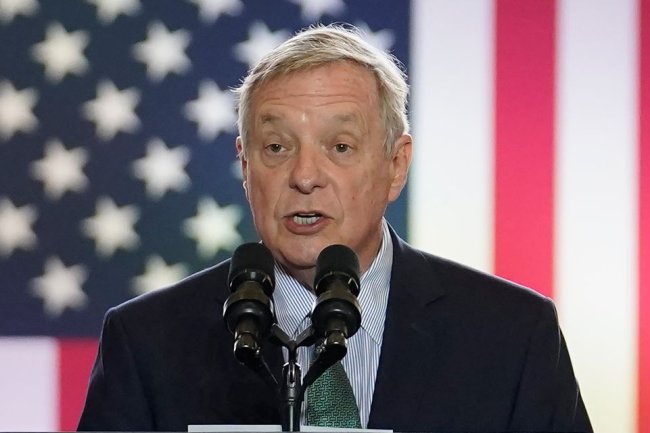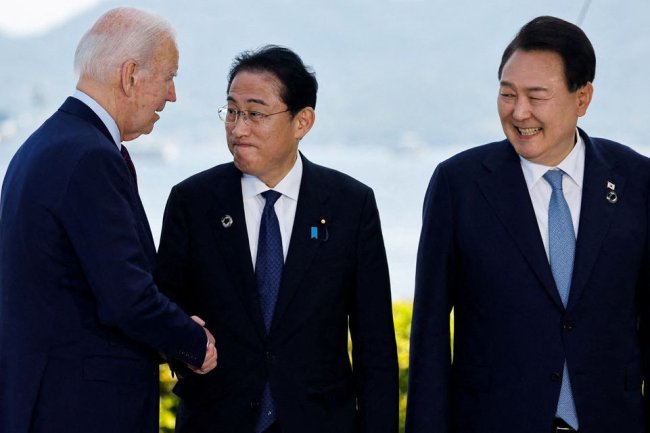Americans’ Thirst for Diageo’s High-End Spirits Slows
Owner of Johnnie Walker scotch said sales of its $50-a-bottle liquor are growing more slowly as pandemic-era spending patterns fade Diageo said its alcohol distributors bought less than they had a year earlier. Photo: Nicky Loh/Bloomberg News By Saabira Chaudhuri Aug. 1, 2023 6:50 am ET Americans are pulling back on buying pricey alcohol as a pandemic-era booze boom slows. Johnnie Walker scotch and Smirnoff vodka maker Diageo Tuesday reported flat annual sales in North America, saying sales growth of bottles priced $50 and up had slowed in the fiscal year to June 30. The company—whose business is tilted more toward upscale alcohol than many of its rivals—also said its share of the U.S. spirits market had declined slightly. Diageo, like other spirits makers, benef


Diageo said its alcohol distributors bought less than they had a year earlier.
Photo: Nicky Loh/Bloomberg News
Americans are pulling back on buying pricey alcohol as a pandemic-era booze boom slows.
Johnnie Walker scotch and Smirnoff vodka maker Diageo Tuesday reported flat annual sales in North America, saying sales growth of bottles priced $50 and up had slowed in the fiscal year to June 30. The company—whose business is tilted more toward upscale alcohol than many of its rivals—also said its share of the U.S. spirits market had declined slightly.
Diageo, like other spirits makers, benefited during the pandemic as many homebound consumers amassed savings, allowing them to spend more money on high-end liquor. A continuing shift toward cocktails and away from beer and wine also accelerated.
While some pandemic-era trends such as home baking tailed off after a few months, the cocktail-making trend looked set to stay. “Everyone was doing Zoom cocktail parties,” said Diageo’s Chief Financial Officer Lavanya Chandrashekar. “It was definitely more exciting to make a delicious cocktail at home than baking sourdough bread.”
Then as bars and restaurants reopened, Diageo continued to see strong growth as Americans rushed to socialize with family and friends. Many drinkers also continued to make cocktails at home.
Now, normality is setting in and the spirits industry’s growth rates are returning to prepandemic levels of between 4% to 6%, Chandrashekar said. Diageo’s $50-a-bottle segment grew 7% last year globally compared with 31% the year earlier.
Overall U.S. spirits sales dropped 1%, offsetting a 1% rise in Diageo’s smaller beer division, which includes Guinness.
Diageo said its alcohol distributors bought less than they had a year earlier when there was a rush of orders to fill shelves following supply-chain disruptions amid the pandemic.
Sales to retailers grew ahead of shipments to distributors, indicating underlying demand is strong, Chandrashekar said. Diageo doesn’t see any signs that consumers are trading down to cheaper brands, though people are shopping “more smartly in terms of where they buy,” with the company’s products at retailers such as Costco
doing well, she said.“I feel good about where the consumer is today in the U.S.,” Chandrashekar said.
Another factor hitting Diageo’s U.S. results was the growing popularity of spirit-based canned cocktails, which made up more than a third of the American spirits industry’s growth last year. Diageo—which had slowed launches of canned cocktail products to focus on other areas—said it lost share in the category, largely to low-end brands.
Overall, Diageo said full-year organic net sales, which strip out currency fluctuations and the impact of mergers and acquisitions, grew 6.5%. The rise was driven by higher prices, with volumes falling 0.8%. Diageo logged sales growth in all regions outside of North America. Net profit rose to £3.72 billion, equivalent to about $4.8 billion, from £3.25 billion a year earlier. Net sales were £17.11 billion, up from £15.45 billion over this period.
The company has in recent years worked to tilt its exposure toward pricier spirits brands as drinkers have shown a growing propensity to spend more. That is particularly the case with tequila where it owns Casamigos and Don Julio. Both tequila brands reported a 13% rise in net sales in North America, helping offset falls in other big brands such as Johnnie Walker and Crown Royal.
Ciroc vodka dropped 32%, dragging vodka down 7% in the U.S. Rapper Sean “Diddy” Combs earlier this year sued Diageo saying the company had mismanaged the vodka he had promoted since 2007, along with the DeLeón tequila brand they co-own. Diageo has denied the allegations and said it is cutting ties with the rapper.
Other big alcohol makers have also flagged slowdowns in the U.S. Cognac-maker Rémy Cointreau last week said its U.S. sales had declined for the quarter ended June 30, blaming a tough comparison with a year earlier and destocking by distributors. LVMH Moët Hennessy Louis Vuitton
said its wine and spirits unit’s sales for the first half of this year had declined 3% on an organic basis.By contrast, Davide-Campari Milano said it has been gaining share in the U.S. and that sales had grown strongly in the quarter, driven by its flagship Aperol brand.
Write to Saabira Chaudhuri at [email protected]
What's Your Reaction?













